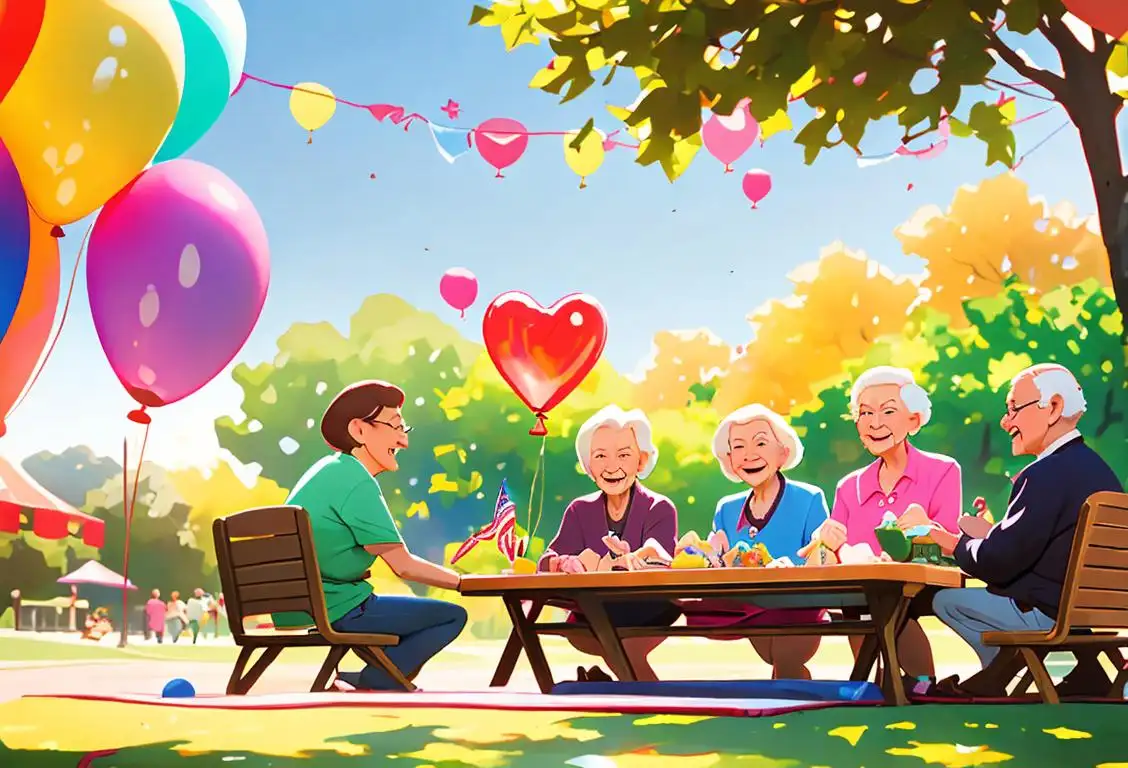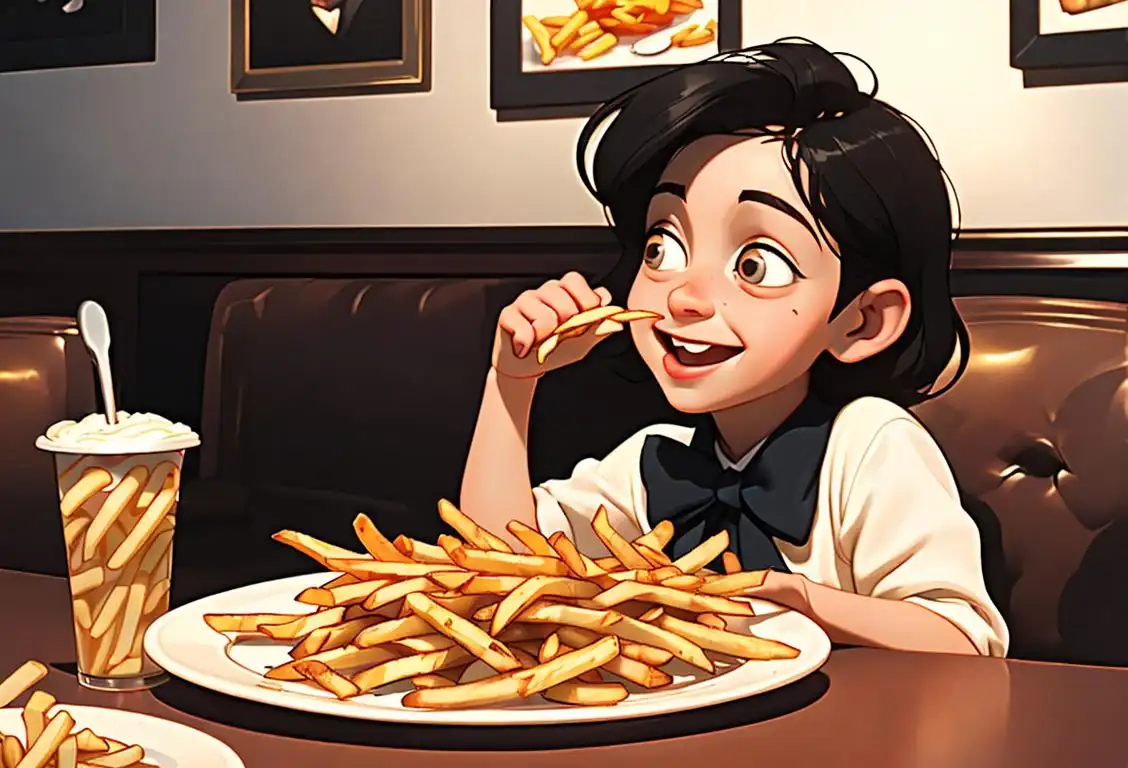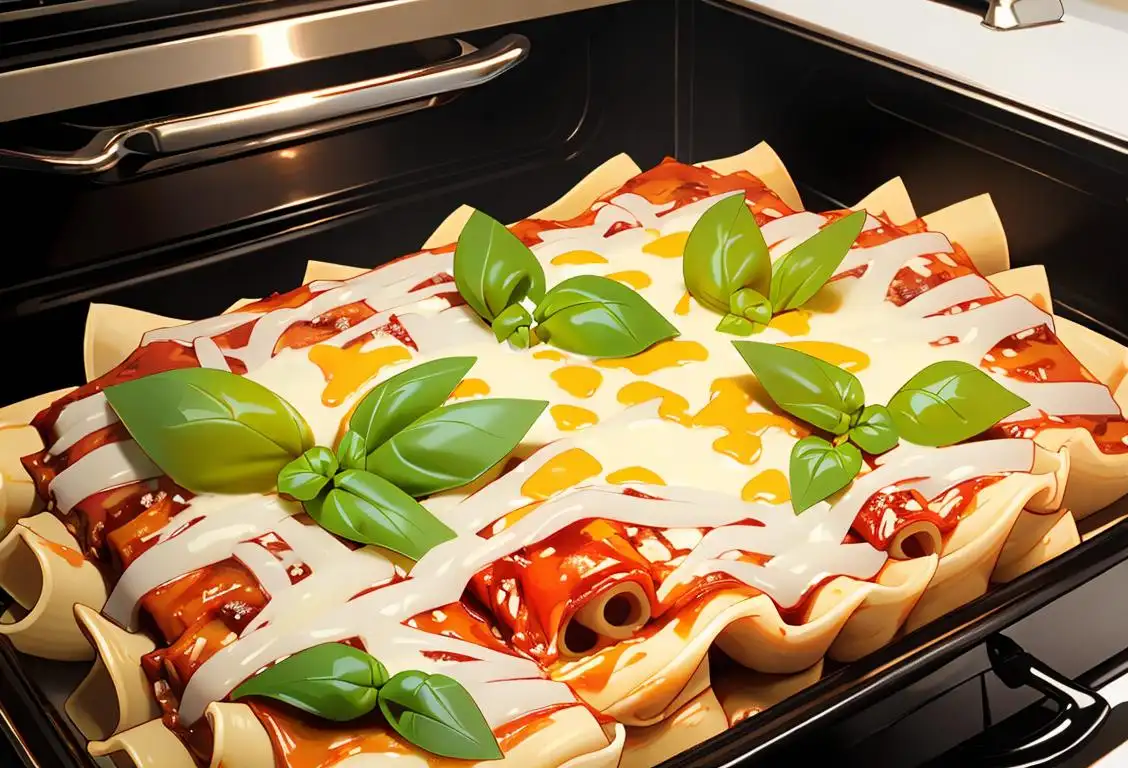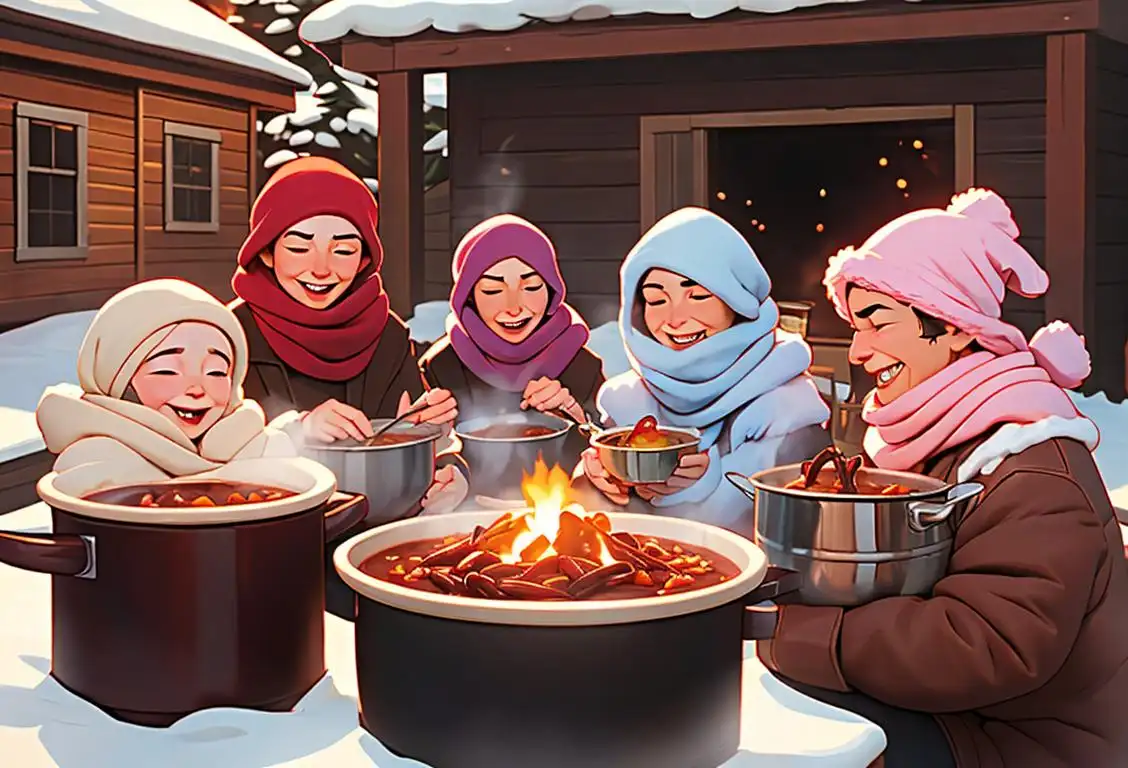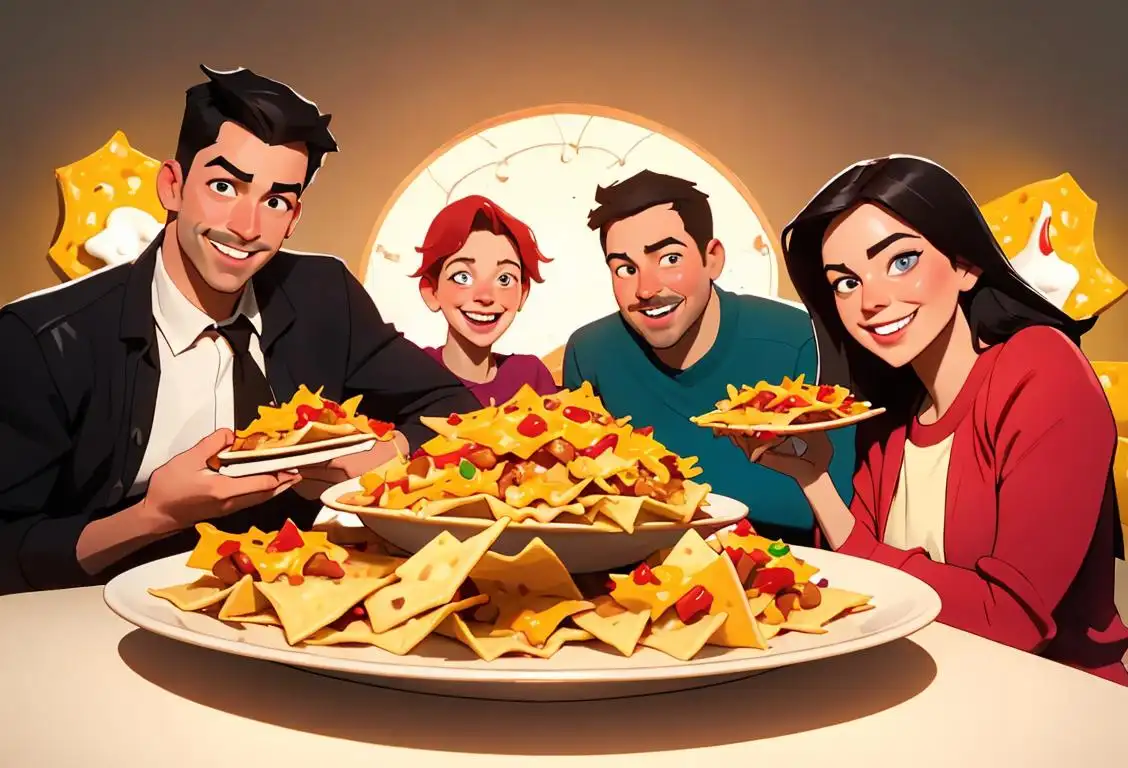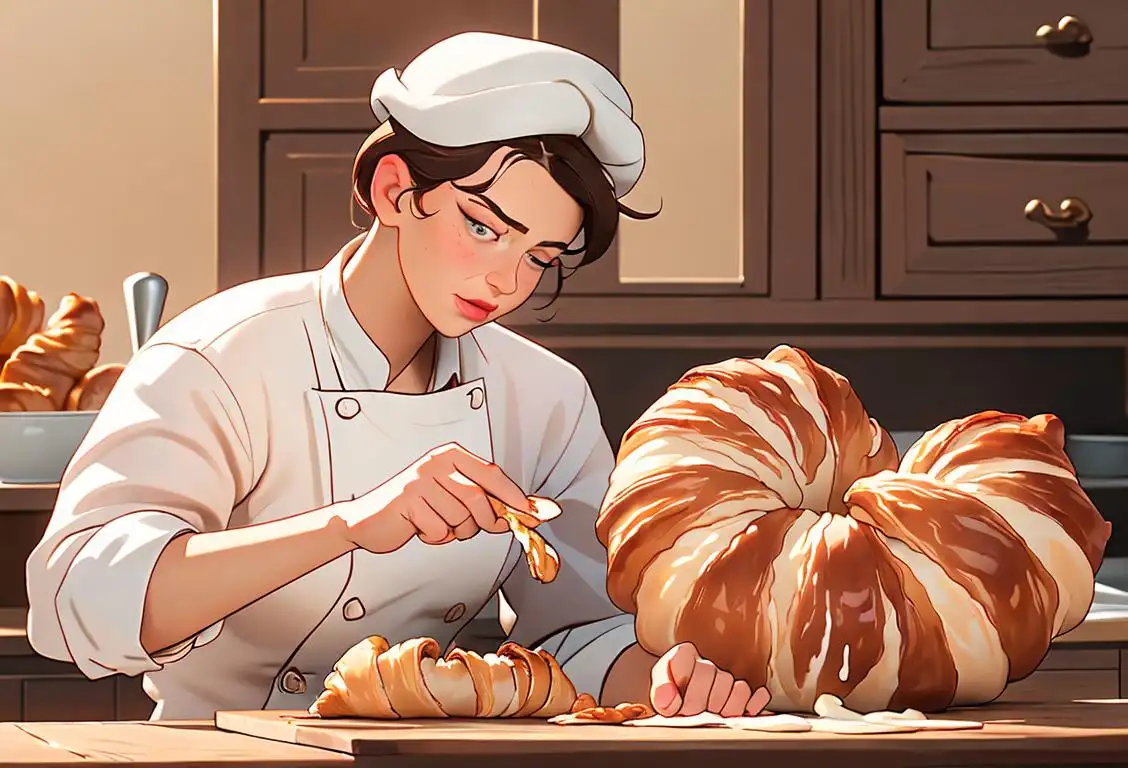National Pickle Appreciation Day
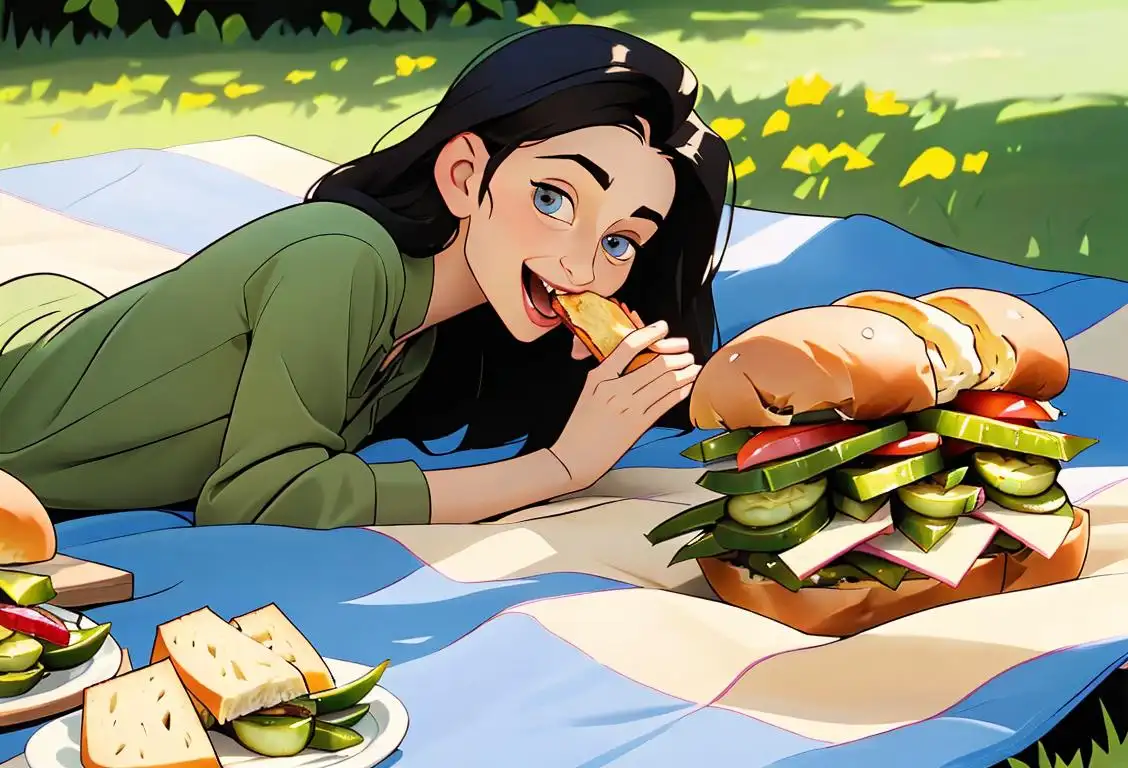
Ah, National Pickle Appreciation Day! A day dedicated to celebrating the tangy, briny, and oh-so-crunchy cucumber creations that have captured our taste buds and added a satisfying pop to many a sandwich. Get ready to pucker up and dive into the world of pickles!
When is Pickle Appreciation Day?
It's national pickle appreciation day on the 14th November.
The Origins of National Pickle Appreciation Day
When it comes to the origins of National Pickle Appreciation Day, the internet is as mysterious as the secret brine recipe passed down from generation to generation. However, we do know that pickles have been cherished for centuries, with evidence of their existence dating back to ancient Mesopotamia around 2030 BC. These preserved cucumbers were believed to have been enjoyed by the mighty Mesopotamian rulers and even found their place in the ancient Egyptian pyramids.
Fast-forward to the 19th century, and pickles had made their way across the Atlantic, gaining popularity in the United States. The pickle industry boomed, and pickles became a beloved accompaniment to meals and a staple in delis across the nation.
Now, as for how National Pickle Appreciation Day came to be, it seems to have sprouted organically (get it?) on the internet. Maybe it was a passionate pickle lover who decided there needed to be a day dedicated solely to honoring pickles. Or perhaps it was the collective craving of pickle enthusiasts that brought this special day into existence. Whatever the origin, we're grateful for the opportunity to celebrate all things briny and delicious!
Pickle Fun Facts
Did you know that the phrase 'in a pickle' dates back to the late 16th century? Back then, it referred to a difficult or sticky situation. So next time you find yourself facing a pickle of a problem, just remember that pickles have been braving tough times for centuries!
How to Celebrate National Pickle Appreciation Day
Ready to get your pickle game on? Here are a few ways you can celebrate this special day:
- Host a pickle tasting party: Gather your friends and challenge their taste buds with an array of pickle varieties. From dill to bread and butter, the options are endless!
- Get creative with pickle recipes: Step outside the jar and discover the wonderful world of pickle-infused dishes. Pickle pizza, anyone?
- Create DIY pickles: Roll up your sleeves and try your hand at making your own pickles. Unleash your inner chef and experiment with different seasonings and flavors.
- Honor the pickle past: Take a trip to your local deli or pickle shop and learn about the rich history of pickles. The more you know, the more you'll appreciate these humble cucumbers!
Remember, National Pickle Appreciation Day is all about celebrating the pickle in all its forms, so embrace the crunch, the tang, and the brine. Happy pickling!
History behind the term 'Pickle Appreciation'
5000 BCE
Early Beginnings
Pickling, the process of preserving food in a solution of salt or acid, traces its roots back to ancient civilizations. As early as 5000 BCE, cucumber pickles were being enjoyed in the Tigris Valley of Mesopotamia. The process of preserving cucumbers and other vegetables in a brine solution was a popular method to ensure the availability of food during times of scarcity.
2000 BC
Ancient Origins
Pickles have a long and rich history, dating back to around 2000 BC. The process of pickling, which involves preserving food in a vinegar or brine solution, was developed as a means of preserving food for long periods of time. Ancient civilizations such as the Mesopotamians, Egyptians, and Greeks all practiced pickling as a way to extend the lifespan of perishable foods.
2003
The Birth of Pickle Appreciation
In 2003, a group of pickle enthusiasts came together to form the Pickle Appreciation Society. They wanted to celebrate and promote the love for pickles, recognizing their culinary importance and cultural significance. This marked the beginning of the pickle appreciation movement.
1923
The Birth of Pickle Appreciation
Pickle appreciation can be traced back to 1923 when the popularity of pickles began to soar. This was primarily due to the rising number of immigrants from Eastern Europe who brought their love for pickled cucumbers to America. Pickles quickly became a staple in American households and gained a special place in the hearts of many food enthusiasts.
5000 BC
Ancient Origins
The history of pickle preservation can be traced back to around 5000 BC, with evidence of pickling techniques being used in ancient Mesopotamia and the Tigris-Euphrates river valley. Early civilizations discovered that immersing fruits and vegetables in a solution of salt or vinegar could prolong their shelf life and add a unique tangy flavor. The term 'pickle' comes from the Dutch word 'pekel', which means brine.
2500 BCE
Ancient Origins
In ancient Mesopotamia, people began to pickle vegetables as a method of preservation. This involved fermenting cucumbers, cabbage, and other produce in a solution of water, salt, and vinegar. The Babylonians and Egyptians were among the first to appreciate the tangy flavor and longer shelf life of pickled foods.
1780
The Origins of Pickling
Pickling, the process of preserving food in vinegar or brine, has been practiced for centuries. It originated in ancient Mesopotamia, where people used salt and brine to preserve fruits and vegetables. This method of preserving food spread across different cultures and eventually made its way to Europe.
2030 BC
Egyptian Influence
The ancient Egyptians also embraced pickling as a preservation method. They pickled cucumbers, watermelons, and various other vegetables using a combination of vinegar, salt, and spices. The process gained popularity due to its ability to keep food edible for longer periods, crucial for sustenance during times of scarcity and long voyages along the Nile River.
900 BCE
Greek and Roman Influence
The ancient Greeks and Romans expanded on the art of pickling, using brine solutions to preserve not only vegetables but also fruits and even meats. The term 'pickle' itself derives from the Dutch word 'pekel,' meaning brine. Pickled foods, often served as appetizers or side dishes, gained popularity for their unique taste and ability to enhance the overall dining experience.
240 BC
The Rise of Pickled Cucumbers
Although pickling various types of food was common, pickled cucumbers gained popularity in ancient civilizations. The cucumbers were pickled using a combination of vinegar, water, and spices. They were valued for their crunchy texture, tangy flavor, and their ability to be stored for long periods without spoiling.
14th Century
Dill Pickles in Europe
Dill pickles, made by adding dill weed or dill seeds to the pickling solution, gained popularity in Europe during the 14th century. The term 'pickle' began to be associated specifically with preserved cucumbers, as they became a popular snack in many European countries.
2008
The Rise of Pickle Festivals
By 2008, the popularity of pickle appreciation spread, leading to the creation of pickle festivals around the United States. These festivals became annual gatherings for pickle lovers to enjoy various pickle-themed activities, such as pickle eating contests, pickle juicing demonstrations, and the opportunity to sample unique pickle flavors from different regions.
1965
The Pickle Boom
In 1965, the pickle industry experienced significant growth, leading to an increased interest in pickles. As people started experimenting with different pickle flavors and recipes, a newfound appreciation for the versatility and taste of pickles began to emerge. The term 'pickle appreciation' was coined during this time to describe the growing movement of recognizing and celebrating the unique qualities of pickles.
850 BCE
Romans and Vinegar
The Romans had a profound impact on pickling practices. Around 850 BCE, they introduced vinegar as the souring agent in pickling, replacing the traditional brine solution. This innovation not only improved the flavor but also increased the shelf life of pickled foods. The Romans even developed pickle factories to meet the growing demand.
17th Century
The New World
During the 17th century, European settlers brought pickling techniques to the New World. The availability of cucumbers in North America led to the rise in popularity of pickles in the region. Cucumbers could easily be pickled and stored for long sea voyages, making them a staple food for sailors.
2012
Pickle Art Takes Center Stage
In 2012, pickle art emerged as a significant aspect of pickle appreciation. Artists began using pickles as a medium to create unique and unconventional artworks. From pickle sculptures to paintings featuring pickles as the subject, these creations added an artistic dimension to the pickle appreciation movement.
15th Century
Pickles Reach Europe
During the Age of Exploration, European explorers and sailors encountered pickled foods during their travels to distant lands. These voyages introduced pickles to Europe, where they quickly gained favor among various cultures. Sailors relied on pickled vegetables as a source of nutrition during long voyages, contributing to their spread throughout the continent.
1492
Pickles in the New World
During Christopher Columbus's voyage to the New World, he brought pickles along to feed his crew. This introduced pickles to the Americas, and they quickly gained popularity. The Native Americans also had their own versions of pickled foods, such as pickled fish and corn.
300 BC
Greek and Roman Pickling
In ancient Greece and Rome, pickling became a commonplace technique. Greeks developed a variety of methods, including pickling in wine or sour milk. Romans developed their own unique recipes, favoring pickling in brine solution and olive oil. Pickles were enjoyed as appetizers, condiments, and even as a digestive aid after lavish meals.
1600s
Pickle Trade and Ships
During the 1600s, pickles gained immense popularity, and the pickle trade became a significant industry. As European sailors embarked on long voyages, they carried pickles on their ships to prevent scurvy, a disease caused by vitamin C deficiency. Pickles were seen as a valuable source of nutrients, and their long shelf life made them ideal for extended journeys.
1987
National Pickle Appreciation Month
The year 1987 marked a significant milestone in the history of pickle appreciation. It was in this year that the month of July was officially designated as 'National Pickle Appreciation Month' in the United States. This month-long celebration provided a platform for pickle lovers across the country to come together and express their love for pickles. Various events such as pickle tastings, pickle recipe contests, and pickle-centric festivals were organized to promote pickle appreciation.
17th Century
Colonial America and Pickle Trade
As European settlers arrived in America, they brought their love for pickles with them. The abundance of cucumbers in the New World led to an increase in pickle production and trade. Picklers established businesses to meet the growing demand and exported pickled goods to Europe, further enriching the cultural exchange between the continents.
19th Century
Industrialization and Commercialization
With the advent of industrialization in the 19th century, the process of pickling became more efficient and commercialized. Large-scale pickling factories emerged, making pickles more accessible to the general public. Pickle vendors started selling their products at street stands, leading to the emergence of pickle appreciation as a cultural phenomenon.
2005
The Rise of Social Media and #PickleAppreciation
With the advent of social media platforms like Twitter and Instagram, the visibility and reach of pickle appreciation expanded even further. In 2005, the hashtag #PickleAppreciation began trending on social media, allowing pickle enthusiasts from around the world to connect and share their love for pickles. The hashtag became a symbol of the pickle-loving community and served as a platform for exchanging pickle-related content, recipes, and anecdotes.
900 AD
Middle Eastern Influence
During the Middle Ages, the Middle East made significant contributions to pickling techniques. The introduction of various spices, such as cinnamon, cloves, and ginger, added complex flavors to pickled foods. These flavors eventually made their way to Europe through trade routes like the Silk Road.
1893
The Birth of Pickle Appreciation
The term 'pickle appreciation' wasn't widely used until 1893 when the Chicago World's Fair, also known as the World's Columbian Exposition, showcased a variety of food products. Among them, of course, were pickles. The fair introduced pickles to a massive audience, and pickle appreciation started to emerge as people recognized the unique flavors and versatility of pickled foods.
2017
Social Media Boosts Pickle Appreciation
With the rise of social media platforms, pickle appreciation found a new outlet for expression. Pickle enthusiasts shared their love for pickles through dedicated online communities, hashtags, and viral pickle challenges. This digital presence not only spread pickle appreciation globally but also led to the creation of pickle-themed merchandise and innovative pickle recipes.
1600s
The Colonial Influence
In the 17th century, European colonists brought their pickling techniques to America. Pickling became an essential method of food preservation, particularly for cucumbers. Colonists began experimenting with different spices and brines, leading to the development of unique pickle recipes.
1492
The New World
After Christopher Columbus's discovery of the Americas, pickling techniques were further enriched by the introduction of new ingredients. Native American tribes already used pickling methods, pickling fish and vegetables using acetic acid from regional plants. European explorers adopted these techniques and shared them with their home countries.
Present Day
Continued Popularity and Worldwide Recognition
Today, pickle appreciation continues to grow in popularity, both in the United States and internationally. Pickle festivals, pickle-themed merchandise, and specialty pickle shops have become commonplace, catering to the ever-increasing demand for all things pickle-related. Pickle enthusiasts have formed communities online and offline, fostering a sense of belonging and camaraderie among pickle lovers worldwide. Whether it's the tangy crunch of a dill pickle or the spicy kick of a pickled jalapeno, pickle appreciation has become a cherished aspect of culinary culture across the globe.
1800s
The Industrial Revolution's Pickle Boom
The Industrial Revolution in the 19th century brought significant advancements in food production and preservation. This led to the mass production of pickles, making them accessible to a broader range of people. Pickles became a staple in American households, enjoyed as a snack, an accompaniment to meals, and even as a hangover remedy.
20th Century
Pickle Appreciation Day
In the 20th century, the term 'pickle appreciation' gained popularity as a way to celebrate the unique flavors and cultural significance of pickles. Pickle Appreciation Day, observed on July 14th each year, became a fun and light-hearted celebration of this beloved food. People started sharing pickle recipes, organizing pickle-themed events, and even creating pickle-themed merchandise.
2021
Official Recognition as Pickle Appreciation Day
Driven by the growing enthusiasm, pickle lovers petitioned to establish an official day to celebrate pickle appreciation. In 2021, their efforts paid off as the United States officially recognized July 14th as National Pickle Appreciation Day. This dedicated day allows people from all walks of life to revel in the cultural legacy and diverse flavors of pickles.
20th Century
Pickles in Popular Culture
Throughout the 20th century, pickles became a beloved part of American cuisine. From their inclusion in sandwiches to being a staple at backyard barbecues, pickles found their way into the nation's heart. With their crunchy texture and tangy taste, pickles became a popular condiment and ingredient in various dishes, further fueling pickle appreciation.
19th Century
Industrialized Pickling
With the advent of industrialization, pickling processes became more standardized and mass production became possible. The rise of glass jar manufacturing allowed for commercial packaging and distribution of pickles, making them readily available to a wider audience. Pickles became a staple in many households and were an essential part of the culinary landscape.
2001
National Pickle Appreciation Day
Pickle appreciation gained official recognition with the establishment of National Pickle Appreciation Day on April 14th, 2001. This designated day celebrates the rich history and wide range of pickles, paying homage to this beloved food. It encourages people to explore different pickle varieties, from classic dill pickles to unique flavors like spicy pickled peppers or tangy bread and butter pickles.
1809
Napoleon's Influence
Pickles gained popularity in Europe during the Napoleonic era. The French leader, Napoleon Bonaparte, offered a cash prize to anyone who could develop a way to preserve food for his armies on the march, leading to significant advancements in the commercial pickling industry. Napoleon is credited with popularizing pickles as a staple in the French diet.
1920s
The Birth of Pickle Appreciation
By the 1920s, pickles had become firmly ingrained in American cuisine. They were celebrated for their unique taste and versatility. The term 'pickle appreciation' emerged during this period to describe the growing love and admiration for pickles and all things pickled.
20th Century
Pickles in Pop Culture
Pickles became an iconic symbol ingrained in pop culture during the 20th century. In 1933, the first commercial jar of pickles featuring a distinct white-clothed stork logo was introduced, becoming a well-known brand. The phrase 'in a pickle' also became a popular expression, used to describe being in a difficult or challenging situation. Pickles had firmly established themselves as a beloved and influential part of society.
1850
Industrialization and Commercialization
With the advent of industrialization, pickles transitioned from being homemade to commercial products. Technologies such as glass jar sealing, pasteurization, and the introduction of mass production made pickles more widely available and affordable. Their popularity grew rapidly, and pickle factories became a common sight in many countries.
20th Century
Global Popularity
Pickles became a beloved food worldwide during the 20th century. They featured prominently in various cuisines, from American hamburgers and hot dogs to Indian mango pickles and Korean kimchi. The appreciation for pickles spread across cultures, reflecting both their practical value as a preservative and their flavorful contribution to culinary traditions.
2021
Pickle Appreciation Day
Today, 'pickle appreciation' is celebrated annually on January 15th as National Pickle Appreciation Day. This day encourages people to savor and honor the rich history and diverse flavors of pickles, from classic cucumber dills to innovative fruit and vegetable pickles. It serves as a reminder of the enduring culinary legacy and cultural impact of pickling.
Did you know?
Did you know that the phrase 'in a pickle' dates back to the late 16th century? Back then, it referred to a difficult or sticky situation. So next time you find yourself facing a pickle of a problem, just remember that pickles have been braving tough times for centuries!Tagged
food fun historyFirst identified
14th November 2015Most mentioned on
14th November 2015Total mentions
190Other days
Senior Citizens Day
French Fries Day
Hot Chocolate Day
Lasagna Day
Jelly Bean Day
Chili Day
Nacho Day
Vodka Day
Martini Day
Pastry Day
